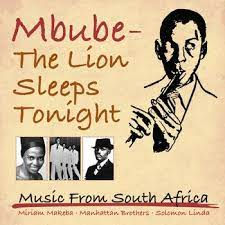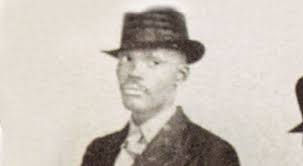Resonating Rhythms: Solomon Linda Their Enduring Legacy
- ppnhara08
- Jun 29, 2023
- 3 min read

In the early 1900s, a remarkable event took place that would forever change the course of South African music history. It was during this time that Solomon Linda, a gifted Zulu musician, stepped into a recording studio and laid down his iconic song "Mbube" in the year 1939. This ground breaking moment marked the first-ever recording by a South African musician, leaving an indelible mark on the development of the country's musical landscape. This academic narrative aims to delve into the profound impact of Solomon Linda's pioneering recording, examining its significance in paving the way for subsequent generations of artists to follow suit and make their own contributions to the global music scene.
The Genesis of "Mbube":
Solomon Linda, a talented musician hailing from the Zulu community, possessed a deep passion for music that emanated from his soul. In the year 1939, he seized the opportunity to capture his vibrant melodies and powerful vocals within the walls of a recording studio. His creation, infused with traditional Zulu rhythms and harmonies, emerged as the timeless masterpiece known as "Mbube." From its inception, this captivating composition struck a chord with audiences, resonating with its distinctive cultural flavour.
"The Lion Sleeps Tonight":
Little did Solomon Linda know that his creation, "Mbube," would transcend boundaries and generations, becoming the source of inspiration for one of the world's most recognizable tunes, "The Lion Sleeps Tonight" The story of how the African melody transformed into a global sensation is an intriguing tale of cross-cultural collaboration and artistic reinterpretation. Through various renditions and adaptations, the song captured the imagination of people across continents, solidifying its place in musical history.
Opening Doors to Cross-Cultural Collaborations:
The success of "Mbube" and its subsequent reincarnation as "The Lion Sleeps Tonight" opened doors for South African musicians to explore cross-cultural collaborations on a global scale. The enchanting rhythms and soulful melodies that were once confined to local communities now found resonance with international audiences. This newfound exposure fostered an environment where artists could connect with musicians from different backgrounds, leading to the emergence of innovative and genre-defying musical fusions.
Music as a Medium for Social Change:
The legacy of South African musicians extends beyond their artistic contributions; it encompasses their unwavering commitment to shedding light on important social issues. Artists such as Miriam Makeba and Hugh Masekela utilized their platforms to address topics like apartheid, racial inequality, and human rights abuses. Their music became a powerful tool for driving change, evoking empathy, and challenging societal norms. They used their voices to advocate for justice, fostering a sense of unity and resilience among the oppressed.

Inspiring Future Generations:
The influence of Solomon Linda, Miriam Makeba, Hugh Masekela, and countless other pioneering musicians continues to reverberate through the halls of South African music history. Their creative courage, profound storytelling, and social consciousness inspire current generations of musicians to carry the torch forward. Today, South African artists are embracing their rich cultural heritage while exploring new sonic frontiers, effortlessly blending tradition with modernity.
The early recording by Solomon Linda marked a milestone in South African music, disrupting the status quo and forever changing the narrative of the nation's musical landscape. Through his iconic song "Mbube," Linda paved the way for future generations of artists to leave their mark on the global stage. From the vibrant rhythms of Zulu culture to the powerful voices advocating for social change, South African musicians have cemented their place in history as pioneers, storytellers, and ambassadors of their nation's diverse and resilient spirit. Their legacy lives on, inspiring musicians around the world to embrace their roots, share their stories, and use music as a catalyst for positive change.




Comments